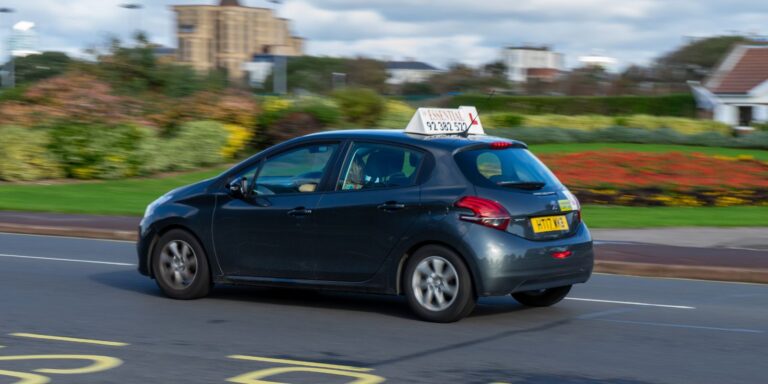Analysis of the latest government data has revealed that younger drivers are outperforming older generations in their driving tests. In the 2023/24 testing period, 52% of learner drivers aged 17 to 24 passed their practical on the first attempt, compared to well under half (44%) of 25 to 34-year-olds.[1]
In fact, learners between the ages of 50 and 59 were most likely to need six or more attempts before succeeding, as just 38% passed their test on the first attempt.
The research, by Go.Compare Car Insurance, looked at pass rate data from the Department for Transport to uncover how many attempts learners need to pass their driving test. In total, 1.94 million driving tests were taken during the year, with fewer than half – 931,494 learners – passing.
How many attempts did learners take?
| Attempt number | % of total passed tests |
| 1 | 46% |
| 2 | 26% |
| 3 | 13% |
| 4 | 7% |
| 5 | 3% |
| 6 or more | 4% |
Of those that did pass in the last year, the figures reveal that just under half were on the first attempt, and a quarter on the second try. For those aged 25 to 34, only 40% of those who passed their test did so on their first attempt. This downward trend continues with just 38% of 35 to 44-year-olds and 36% of those aged 45 to 49.
The insurance comparison site’s research sheds light on recent calls to increase driving test fees for those who need multiple attempts to pass.[2] The proposal encourages learners to wait until they feel fully prepared before taking their practical test. But it raises concerns, particularly for older generations who might already face hurdles in passing their tests.
Tom Banks, car insurance expert at Go.Compare, said: “For older learners, the financial implications of this proposal could prove burdensome. A lot of people in this age group will have large financial commitments, like mortgages or family expenses, making it difficult to absorb the additional costs that come with retaking driving tests. As the current practical test fee is £62, the cost of retaking can quickly add up, especially when combined with the need for additional lessons.[3]
“It’s essential to recognise the varying challenges faced by learners of different ages. Our research implies that younger drivers might be more confident when approaching their driving test and even benefit from the advantage of modern driving lesson structures, while older drivers might struggle with new road rules and vehicle technology.
“These findings not only highlight the disparities in driving test success rates among different age groups but also raise important questions about how to better support older learners.”

